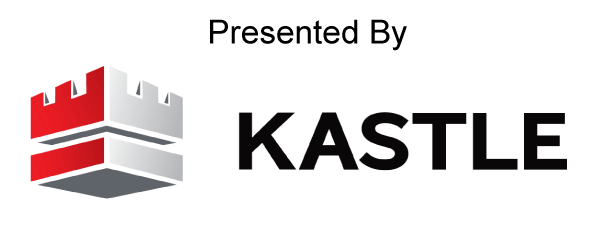Wednesday, July 23, 2025
On Tap Today
Office betting: Blackstone is trying to get a half a billion dollar loan to upgrade its new Paris office complex.
Stuck in the HUD: Affordable housing projects have stalled as there is uncertainty about the future of renter assistance programs.
IPO for it: A Riyadh-based developer is joining the recent trend of Saudi companies filing for IPOs.
Upcoming webinar: Mixed-use projects promise vibrant, walkable neighborhoods—but what does it really take to make them work? Sign up
Flash Poll
Still unsure how AI-enhanced surveillance fits into your property strategy? You’re not the only one. Want to know which smart security tools your peers are eyeing?
Take our quick poll to see which AI-powered video surveillance upgrades—like anomaly detection or license plate recognition—could deliver the most value. Then, read: How to Upgrade Security by Simply Integrating the Existing Systems in Commercial Properties.
If a mountain lion entered your office at midnight Sunday, could your video surveillance trace its location before staff arrives 8am Monday?
Presented by Kastle
Most smart cameras promise real-time alerts. But what about the bigger picture?
This free eBook breaks down why the real value of AI in video surveillance isn’t in the camera—it’s in the analysis that happens after. Learn how backend AI can unlock smarter forensic investigations, uncover hidden behavioral patterns, and turn raw footage into actionable insight—without replacing your existing hardware.
If you're managing physical security across multiple sites, this quick read will help you rethink where your surveillance system delivers its real ROI.
✅ Discover why backend AI is more powerful
✅ Explore real-world use cases and ROI comparisons
✅ Learn how to modernize without a full system rip-and-replace
Editor’s Pick
Blackstone’s recent bid to secure a €500 million loan against the Trocadero office complex in Paris is more than just a financing maneuver—it’s a bet on Europe’s office market breathing new life. As its largest such deal since the post‑rate‑hike malaise of 2022, it signals a pivotal shift: lenders are once again eyeing trophy office assets in gateway cities with cautious optimism. Blackstone’s willingness to lean on debt reflects broader confidence that high-quality offices are poised to rebound, even as activity remains uneven.
This move follows Blackstone’s €705 million acquisition of the Trocadero complex from Union Investment, another indicator that big investors are returning to prime office assets. For real estate practitioners, the deal underscores the importance of asset quality. Prime buildings with tenant appeal, sustainable features, and strong location fundamentals are attracting capital—and refinancing—while the secondary market lags, squeezed by tighter spreads and residual weakness in demand.
From a financing perspective, this transaction is notable not just for its size but for its structure. Securing such a large loan requires competitive terms from lenders, spot‑on underwriting, and robust asset-level projections. This deal, if completed, would be a huge bet on the future of offices and could mark a paradigm shift around the perceived value of offices post COVID.
Yet even amid the optimism, offices still remain a risky bet. Market data suggests that while prime office leasing is picking up in major cities, tail risk persists. Vacancy rates and economic uncertainties still make the fate of certain underperforming offices uncertain. For stakeholders in real estate, developers, fund managers, and lenders alike, the lesson is clear: big deals are back, but only where assets check the top‑tier boxes.
Ultimately, Blackstone’s Trocadero financing isn’t just another transaction, it’s a calibrated test. It asks whether capital can be effectively deployed into offices as anchorholds of urban real estate, or whether broader market headwinds will hold the rebound hostage. Offices have certainly started to bounce back from their lows during the pandemic, but can they continue to grow in a world where hybrid work schedules remain the norm?
Overheard

The Trump administration’s proposed $27 billion cut to federal rental assistance programs is already stalling affordable housing developments across the country. While the plan remains under congressional review, the mere prospect of a 43% reduction in Department of Housing and Urban Development (HUD) funding has spooked lenders and thrown project pipelines into uncertainty.
In New York City, a senior affordable housing project planned by developer Jeff Fox was abruptly shelved after the city’s housing agency postponed a round of Section 8 subsidies. “No one knows what’s going to happen,” said Fox. “Rather than overcommit, they’re pumping the brakes.” That sentiment is spreading. Affordable housing lenders, such as SDS Capital and Merchants Capital, report a growing reluctance to back HUD-reliant deals.
The cuts would jeopardize the financial viability of projects that rely on rental subsidies for operating revenue. Developers warn that this threatens to destabilize the broader housing finance system. According to the New York Housing Conference, $50 billion in multifamily loans backed by Fannie Mae and Freddie Mac could be at risk of default.
While the House rejected the proposed overhaul, HUD continues to lobby for it, casting a shadow over an industry already squeezed by rising costs and tightening capital markets. As the Senate prepares its review, developers and advocates are bracing for a prolonged period of uncertainty and an even more constrained pipeline for new affordable housing.

Saudi Arabia has been a hotbed of IPOs recently. Some of those IPOs have been in the real estate space. Earlier this year the construction contractor and supplier Marketing Home announced that they would be preparing to sell 30% of their shares to the public. Now the real estate company Dar AlMajed, a Riyadh-based developer, is following suit and putting a 30 percent stake in the company. For real estate practitioners tracking Saudi’s Vision 2030‑funded transformation, this marks another credible marker for market maturity.
From a portfolio strategy perspective, it’s a wake-up call: Saudi is transitioning from opaque developer-led funding to steps toward securitized, investable real estate products. The public disclosures that will come with the security offering will also help bring transparency to the country's real estate. If Dar AlMajed prices at the top of its range—and most IPOs so far have clustered near peers—it’ll underline that Saudi’s real estate capital markets are not just open, but hungry for investment.
Popular Articles
Are You Enjoying This Newsletter?
Propmodo Daily is written and edited by Franco Faraudo with contributions from readers like you and the Propmodo team.
📧 Forward it to a friend and suggest they check it out.
🔗 Share a link to this post on social media.
🗣 Have ideas for future topics (or just want to say hello)? Share your feedback and tips at [email protected] or connect with us on X through @propmodo.
✅ Not subscribed yet? Sign up for this newsletter here.
📫 Please add our newsletter email, [email protected], to your contacts to make sure you don’t miss any updates.
Enjoy reading about trends and innovation in commercial real estate? Subscribe to Propmodo.com for unrestricted access to reliable, data-driven journalism and exclusive insights available only to subscribers.








